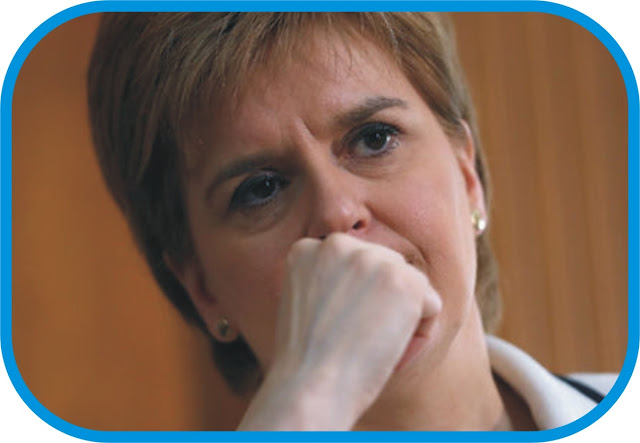Nicola Sturgeon’s continuous clamour for a second
independence referendum may hit a brick wall, due to the present state of the
Scottish economy as being reported.
It is officially reported that the last quarter of 2016 saw
contraction in Scotland, while the rest of the UK grew. Thus, some are of the
opinion that Scotland has shrunk and is staggering on the edge of recession. And
that a negative figure in the first quarter of 2017 would indicate that the
region is leaped into economic recession.
Independent analyst have also criticised the SNP government for
pushing the blame on the outcome of Brexit, saying other parts of the UK
experienced growth within same period.
Economic experts have warned that if the trend continues,
the government may lose about £1.6 billion revenue from tax receipts for within
the next five years.
The sad news concerning Scotland’s economy is coming amid
Sturgeon’s struggle for another indyref, even after UK ministers indicated that
such would not be allowed until 2022 at the earliest.
Scottish Tory finance spokesperson Murdo Fraser cautioned
the country was “facing a crisis and insisted Ms Sturgeon “must take
responsibility for this mess”.
He further said: “She has made Scotland the highest-taxed
part of the UK and created more instability and uncertainty with her threat of
a second referendum. Now we see the real-life impact of her mismanagement.
“More than ever, Scotland needs a First Minister in charge
who gets back to her desk, ends her obsession with a second referendum and
focuses on her day job.”
From the latest data, it can be seen that the economic
output of Scotland fell by 0.2% in the last quarter in 2016- which experts say
is the first decline since the third quarter of 2015. This is in contrast with the
rest of the UK which grew by 0.7% during the same period.
In a similar vein, between January to December last year,
Scotland’s economy grew only by 0.4%, which is behind 1.8% across the whole of
the UK.
But compared to the fourth quarter of 2015, Scottish output
was flat (0.0 per cent change).
Meanwhile, the next set of data due to be made public in
July will determine if Scotland is officially in recession or not.
Finance Secretary Derek Mackay claimed the statistics
reflect the “economic reality of the Brexit vote”.
He said: “We have already seen significantly lower consumer
confidence in Scotland since the vote last summer.
“Now we see that feeding through into our growth figures and
all of this is before the UK actually leaves the EU.”
On the other hand Professor Graeme Roy, director of the
Fraser of Allander Institute at the University of Strathclyde, said: “At a time
when the UK economy grew at 1.8 per cent over the same period, this is a
serious cause for concern.
“With any Brexit uncertainty affecting the UK as well, it’s
hard to argue that Scotland’s relatively weaker performance can be explained by
the outcome of the EU referendum.”
Also speaking, economist John McLaren estimate income tax
revenues will be between £369 million and £1.6 billion lower over the next five
years if Scotland’s economy continues to lag behind the rest of the UK at rates
of 0.5 per cent or 1 per cent, respectively.












No comments:
Write comments